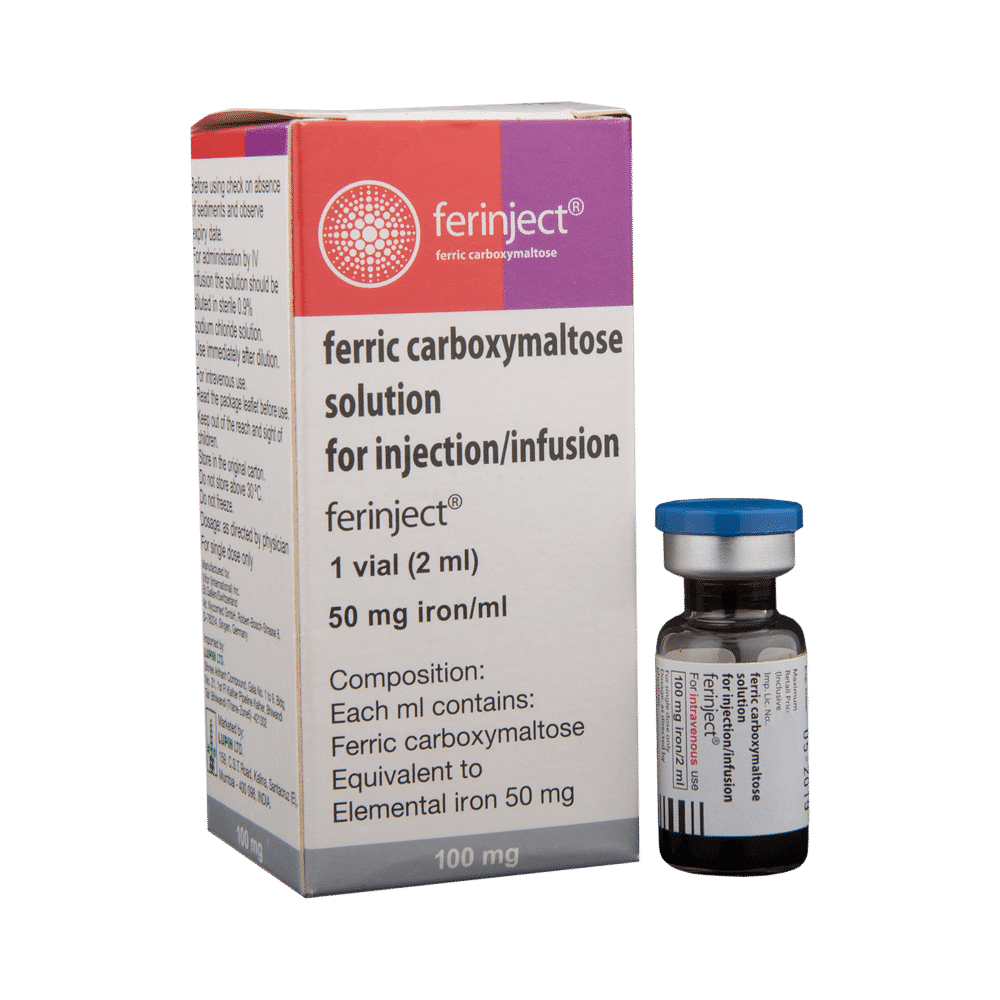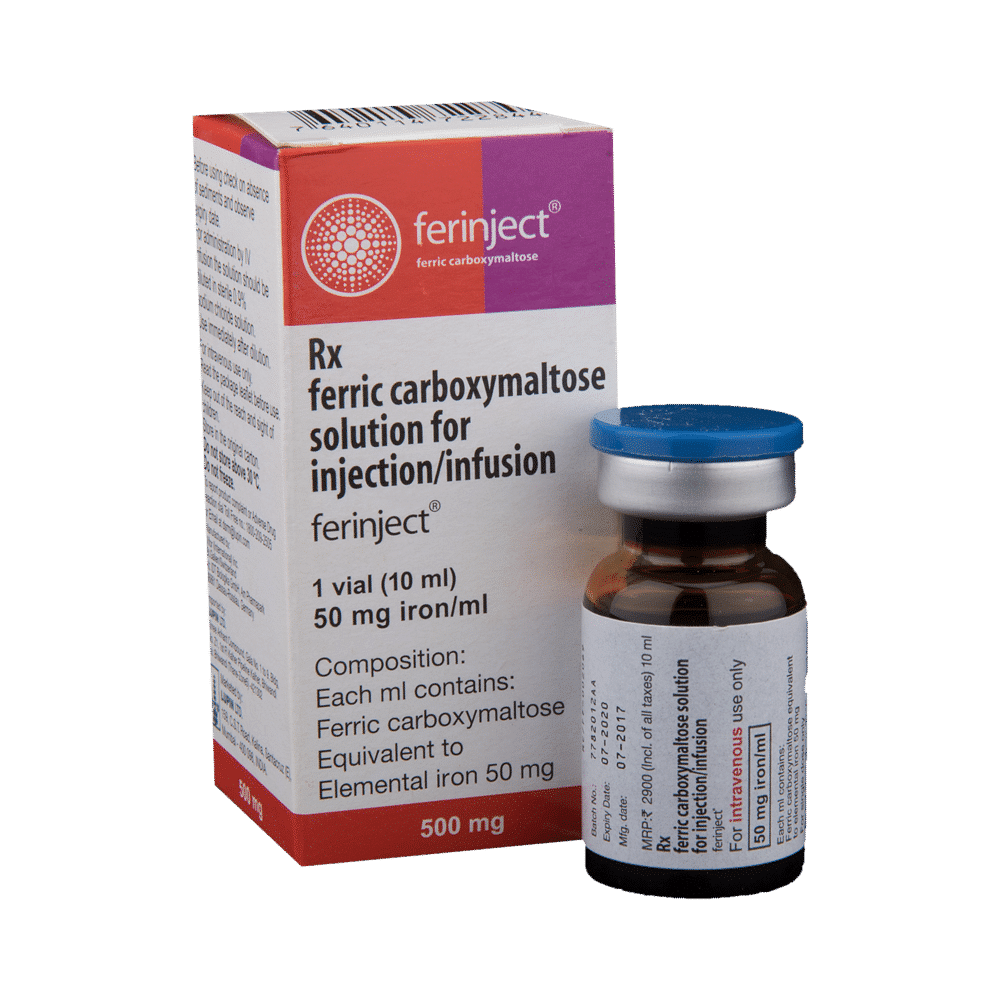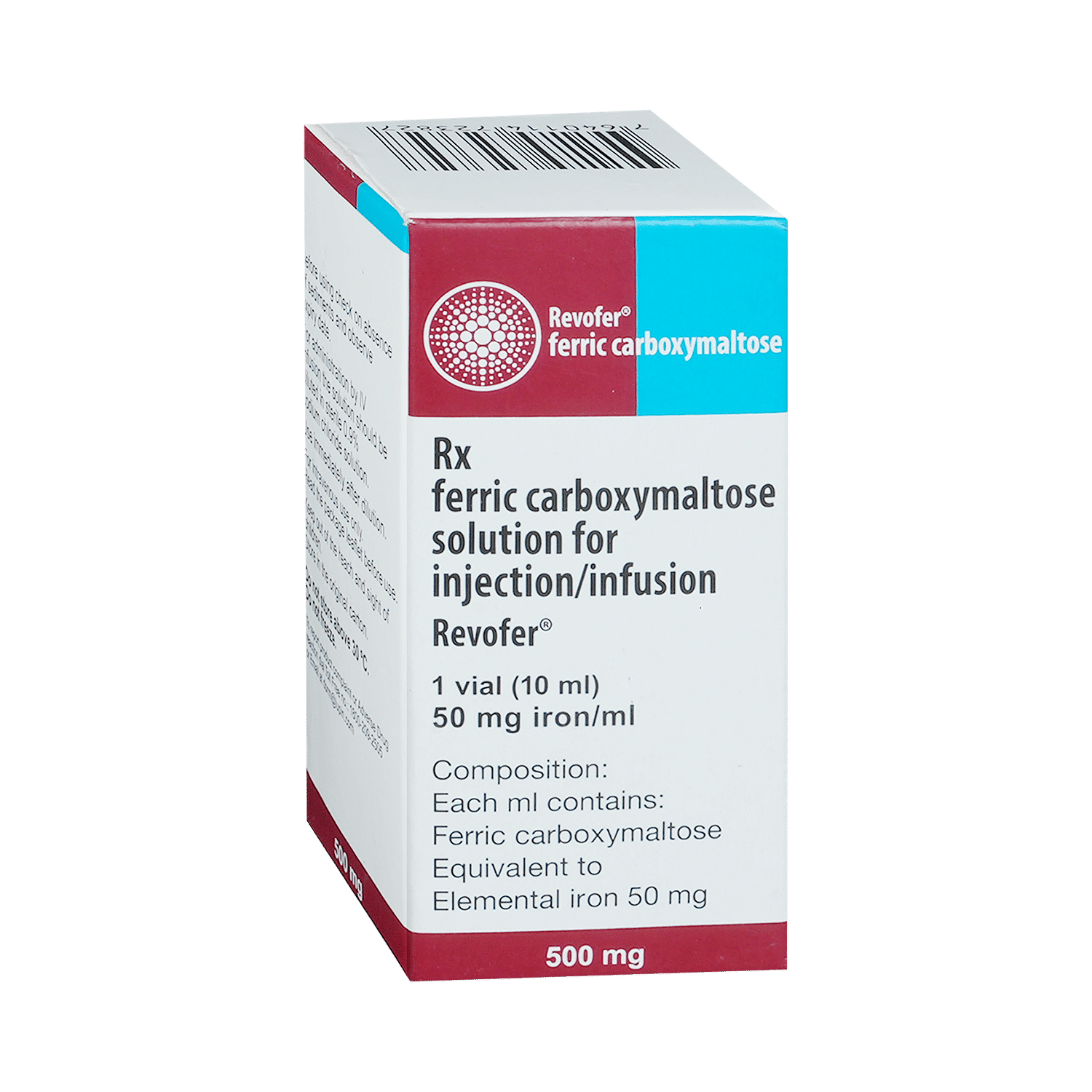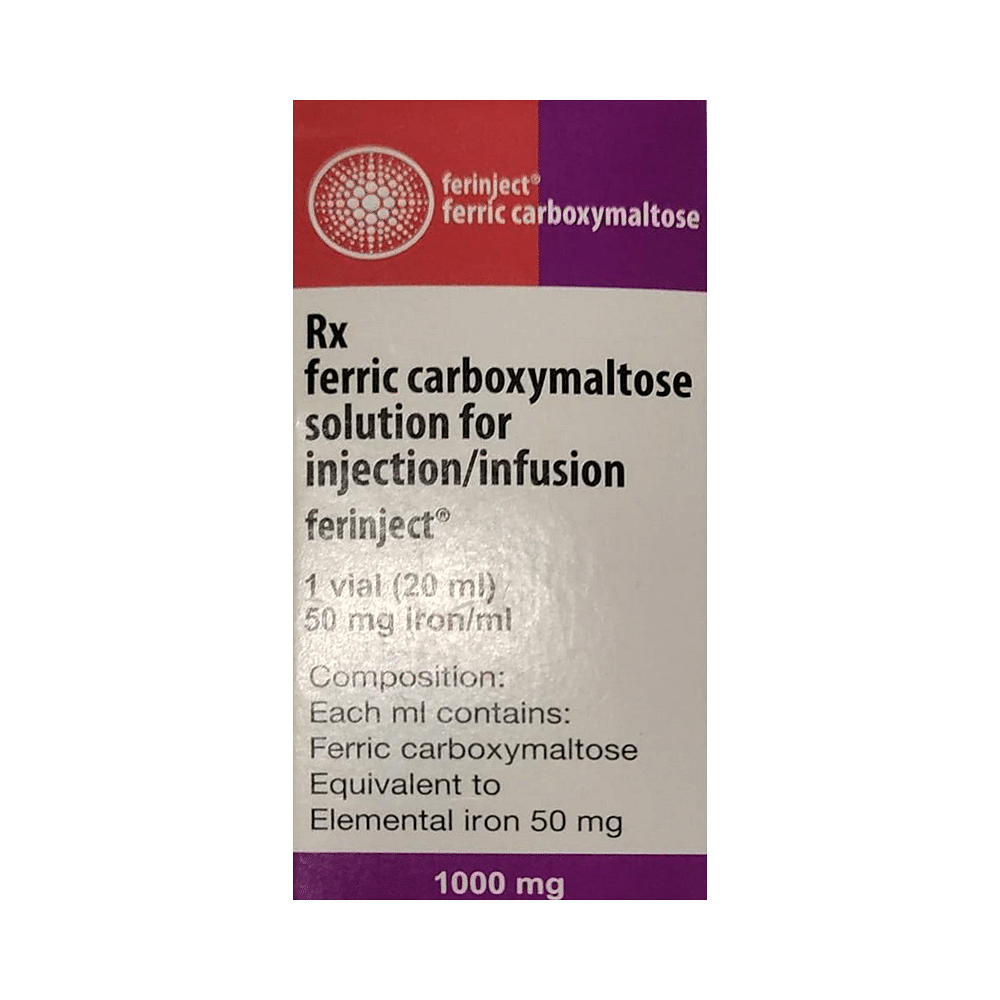
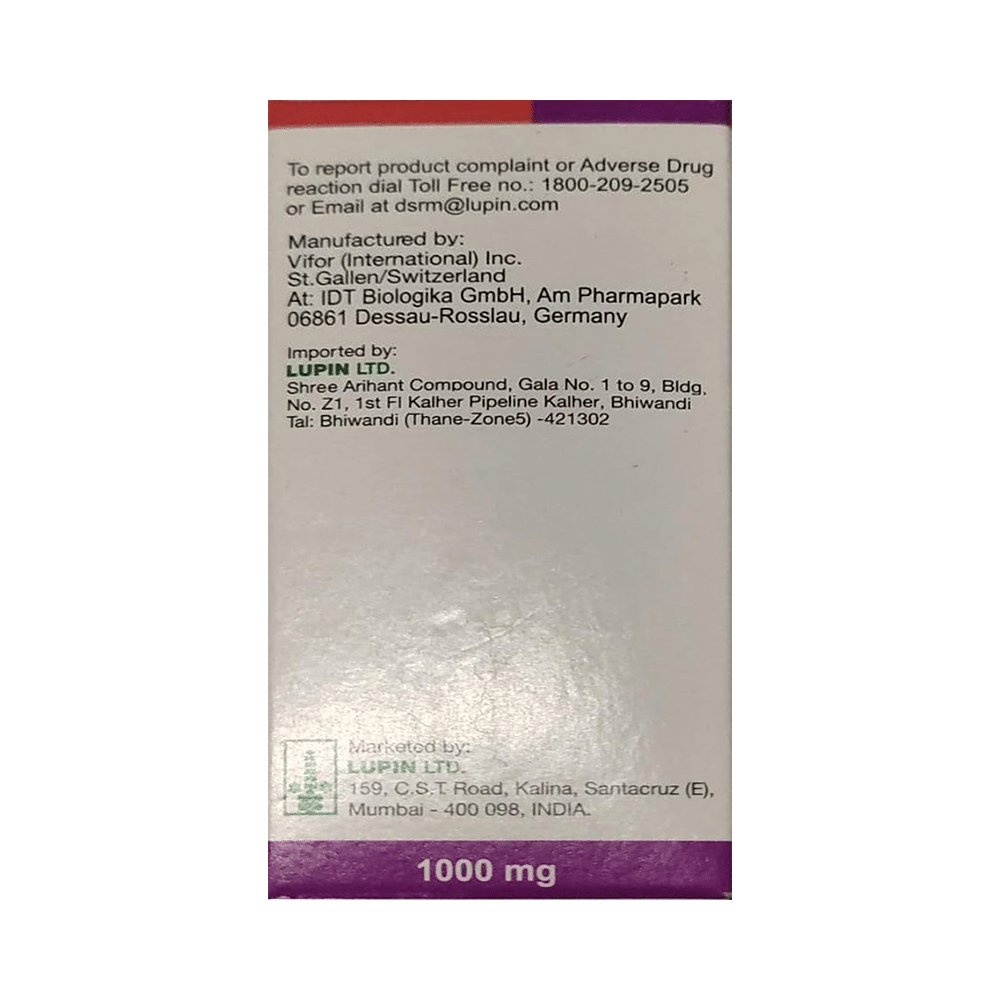
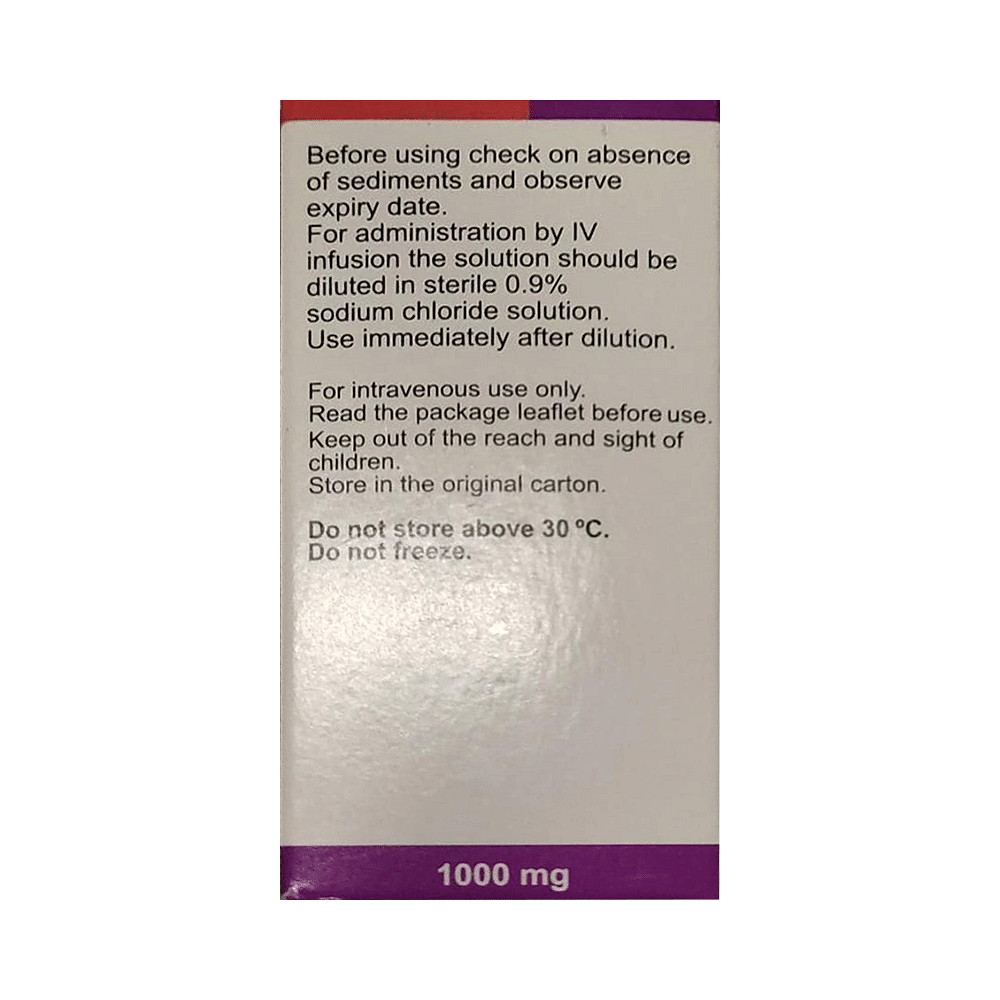
Ferinject 50mg/ml Solution for Injection
Manufacturer
Lupin Ltd
Salt Composition
Ferric Carboxymaltose (50mg/ml)
Key Information
Short Description
Ferinject 50mg/ml Solution for Injection is an iron replacement medicine used to treat iron-deficiency anemia, replenishing the iron stores in the body.
Dosage Form
Solution for Injection
Introduction
Ferinject 50mg/ml Solution for Injection is given by injection or infusion into a vein by a doctor or nurse. It is usually given in two doses seven days apart. Your doctor will decide how much and how often you may need injections to improve your anemia. Eating a well-balanced diet that has enough iron, vitamins, and minerals can help to replenish your iron reserves. Good sources of iron include meat, eggs, raisins, broccoli, and lentils.
Directions for Use
Your doctor or nurse will guide you on how to use this medicine.
Safety Information
Side Effects
Vomiting Headache Dizziness High blood pressure Pain or irritation at the site of injection
Alcohol Warning
It is not known whether it is safe to consume alcohol with Ferinject 50mg/ml Solution for Injection. Please consult your doctor.
Breastfeeding Warning
Ferinject 50mg/ml Solution for Injection is safe to use during breastfeeding. Human studies suggest that the drug does not pass into the breastmilk in a significant amount and is not harmful to the baby.
Pregnancy Warning
Ferinject 50mg/ml Solution for Injection may be unsafe to use during pregnancy. Although there are limited studies in humans, animal studies have shown harmful effects on the developing baby. Your doctor will weigh the benefits and any potential risks before prescribing it to you. Please consult your doctor.
How it works
Ferinject 50mg/ml Solution for Injection replenishes the iron stores in the body. Iron is vital for the formation of new red blood cells and hemoglobin, a substance that gives these cells the ability to transport oxygen.
Quick Tips
Ferinject 50mg/ml Solution for Injection is used for the treatment of iron deficiency When oral iron preparations are ineffective or cannot be used Your doctor or nurse will administer it by injection You will be observed for at least 30 minutes after each injection as it may cause allergic reaction Your blood pressure and blood iron levels will be regularly monitored during treatment with this medication
Related Medicines
Frequently asked questions
What precautions should be taken when administering Ferinject 50mg/ml Solution for Injection?
Ferinject 50mg/ml Solution for Injection must be administered by trained personnel who are equipped to handle serious allergic reactions (anaphylactic reaction). The medication can be administered as a direct, undiluted injection into the vein or via a dialyzer if the patient is undergoing dialysis. It can also be diluted with sodium chloride and given intravenously. Following each injection, patients should be monitored for at least 30 minutes. Do not administer the injection subcutaneously (under the skin) or intramuscularly (into muscle tissue).
How should Ferinject 50mg/ml Solution for Injection vials be stored before use?
Ferinject 50mg/ml Solution for Injection vials must be stored at 20°C to 25°C (68°F to 77°F). They must not be frozen. The temperature should remain between 15°C to 30°C (59°F to 86°F).
How often can Ferinject 50mg/ml Solution for Injection be re-injected?
Generally, two doses of this medication are administered 7 days apart. The hemoglobin is then assessed at least 4 weeks after the final injection to allow time for red blood cell formation. If subsequent reports still indicate a need for iron supplementation, re-administration can be considered based on individual needs.
Can Ferinject 50mg/ml Solution for Injection cause an increase in blood pressure?
Yes, Ferinject 50mg/ml Solution for Injection may temporarily cause an increase in blood pressure along with symptoms such as facial flushing, dizziness, and nausea. This often occurs immediately after medication administration and generally subsides within 30 minutes.
What should be done if Ferinject 50mg/ml Solution for Injection leaks?
Incorrect administration of Ferinject 50mg/ml Solution for Injection may cause leakage at the injection site. Stop the administration immediately if leakage occurs. The leakage could cause skin irritation and long-lasting brown discoloration at the injection site.
Is Ferinject 50mg/ml Solution for Injection safe during pregnancy?
There is limited data on the use of Ferinject 50mg/ml Solution for Injection in pregnancy. It's crucial to inform your doctor if you are pregnant or plan to become pregnant. Consult your physician if you become pregnant while receiving treatment with Ferinject 50mg/ml Solution for Injection. Your healthcare provider will determine whether treatment needs to be continued or discontinued.



